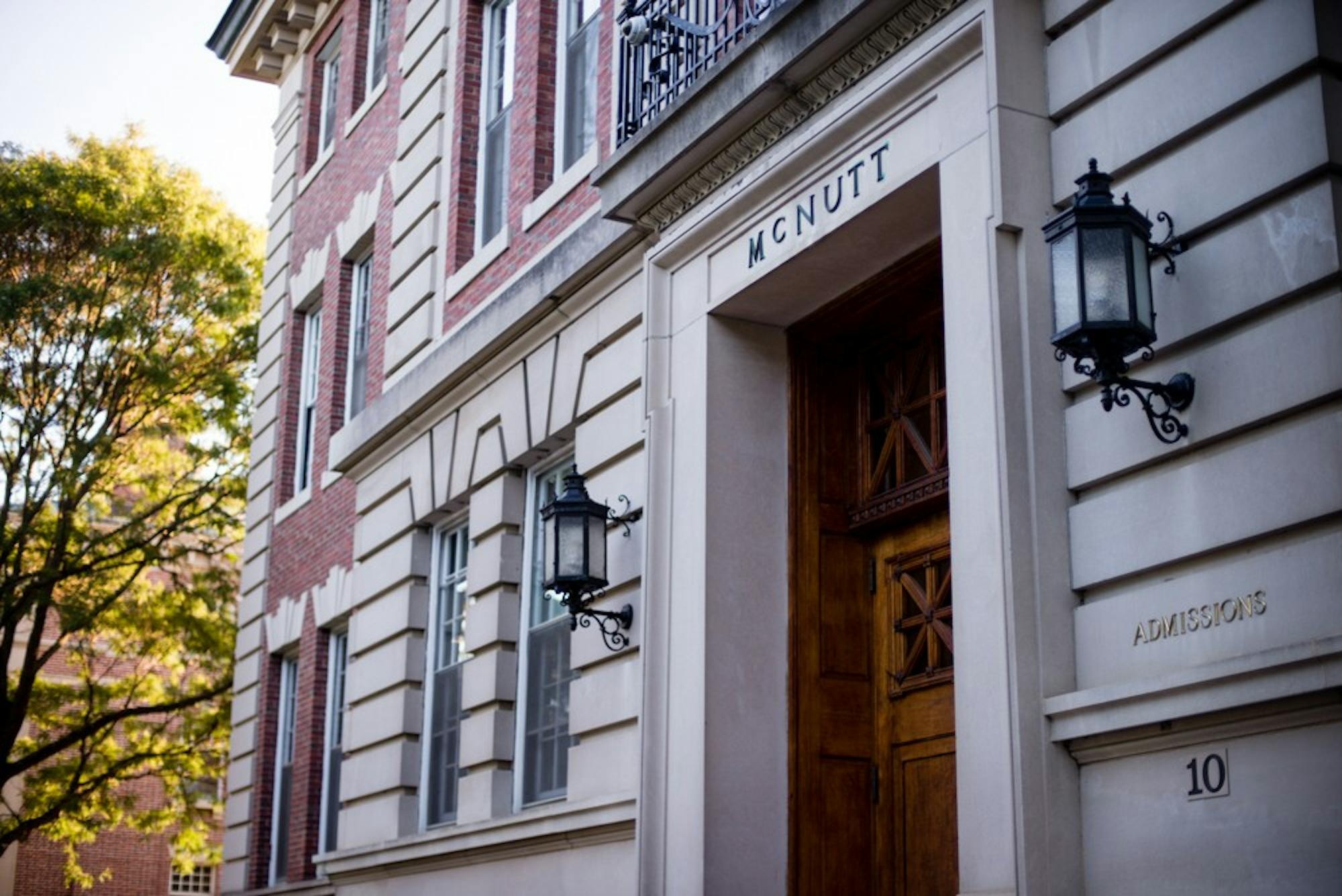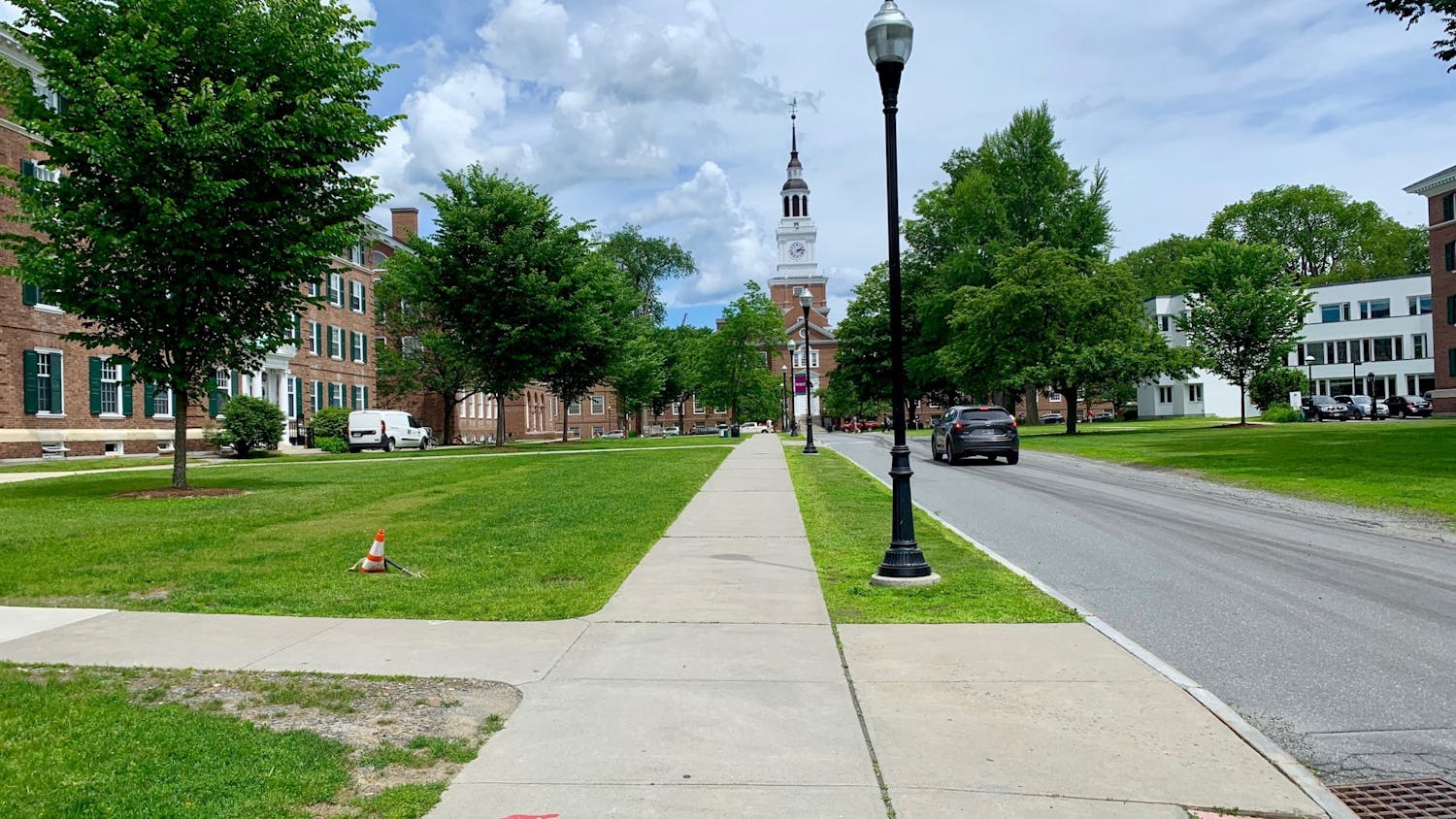While some peer institutions have discounted tuition amid online learning, Dartmouth students enrolling for the fall quarter will pay full tuition — which is up over $2,000 from the previous academic year.
On March 1, the College announced that the Board of Trustees approved a 3.9 percent increase in undergraduate tuition for the 2020-2021 academic year, bringing tuition costs to $57,796 — not including various fees or room and board for students on campus. The College has maintained that this cost will remain the same during remote learning.
Meanwhile, Georgetown University, Johns Hopkins University and Princeton University, whose courses remain remote, have all lowered their tuition by 10 percent. Williams College has reduced tuition by 15 percent, and the Massachusetts Institute of Technology has offered all students a $5,000 grant.
Other universities are pausing annual or regular tuition increases. After switching to remote classes, the University of Pennsylvania decided not to raise tuition by 3.9 percent, as originally planned by its board of trustees, and reduced its general fees for remote students. The University of Chicago also froze its periodic tuition increase after students threatened a tuition strike.
With regard to fees usually paid on top of tuition, Dartmouth did not charge the “student activities” or “health access” fees during the remote spring term, but has reinstated these fees for the summer and fall terms for all students, regardless of on- or off-campus status.
Student Assembly vice president Jonathan Briffault ’21 said that SA is “extremely disappointed” to see the College raising tuition during a “truly challenging time” for students.
Since the beginning of the pandemic, the College has maintained that it “absolutely” expects remote classes will meet the academic standards of in-person classes.
The College has also said that “tuition at its current rate is necessary just to pay for the courses students are taking.”
Mike Wagner, Dartmouth’s chief financial officer, said that the College has estimated a $100 million loss for the fiscal year 2021. The loss of room and board revenue alone amounts to a $30 million loss for the College, Wagner added. The College also faces additional costs this year, spending $15 million on COVID-19-related equipment and contact tracing. Wagner added that Dartmouth typically generates a revenue “in the range of a billion dollars.”
To compensate for the $100 million loss, Wagner said that Dartmouth has asked various departments to “rebudget” such that the College will save about $50 million for the next academic year. He added that the College has significant reserves to cover losses in the upcoming year.
Wagner added that expected losses have “not been a driver of any decisions that have been made” and that “[the College is] in a position where [it] can sustain, either through savings or reserves, a range of losses.”
The College has also stressed that it will not withdraw funds from its near $6 billion endowment for matters like reducing undergraduate tuition, citing the need to ensure future financial stability.
Vice president of campus services Josh Keniston and director of financial aid Dino Koff did not respond to requests for comment. Provost Joseph Helble directed a request for comment to College spokesperson Diana Lawrence, who said College administrators have declined to comment on tuition-related matters, citing ongoing litigation.
Some have argued that Dartmouth should reduce tuition for remote learners, claiming that students are receiving an inferior educational experience. A class action lawsuit brought by a Dartmouth parent argued that students had paid “tuition for the full Dartmouth experience and yet they are receiving less.” The lawsuit also claims that the College is “profiting from COVID-19 by asking students and their families to bear the financial brunt of the pandemic.”
Briffault agreed that the quality of remote education does not match that of the typical Dartmouth experience. He added that the College will be restricting access to certain buildings, like the Hopkins Center for the Arts, that tuition normally pays for.
In a motion to dismiss the case, the College argued that students had “ample time” to withdraw if they did not want to participate in remote learning, and that courts cannot legally weigh in on the “the relative value of different teaching methods” such as online learning.
The case has since been dismissed.
Briffault said that SA has approached administration about the tuition increase, but said their regular contacts, such as Lively and associate dean for student life Eric Ramsey, have not been receptive.
“It’s not something that they’ve been willing to engage with us on, and it's not an area where we’ve had productive conversations with them,” Briffault said.
He added that Lively and other administrative contacts “indicated that they are not comfortable talking about things like tuition” and “made it very clear to us that this is not changing.”
Jackson Butler, a Georgetown senior who helped lead the push for Georgetown to reduce its tuition, faced a similar experience at first, saying that the administration did not respond to several emails inquiring about tuition.
In response, Butler created an online petition and an Instagram account and alerted various national news outlets to his calls to lower tuition. Shortly after he sent an email to members of the Georgetown board of trustees about appearing in the media, Georgetown announced a tuition reduction.
After Dartmouth’s administration appeared unwilling to negotiate on tuition, SA did not push further on the topic.
Briffault noted that a desire to maintain “trust and collaboration” between SA and the administration has to inform the way SA goes about its work.
Butler, meanwhile, noted that it is “really hard to justify” a financial argument against reducing tuition, given the number of other colleges with smaller endowments that have reduced tuition.




